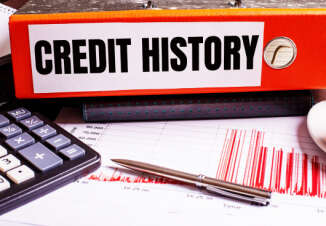The content on this page is accurate as of the posting date; however, some of the offers mentioned may have expired.

A credit history is very important in order to go about your daily routine. Not having a credit history can affect you several ways. It can determine whether or not you get a job, it will decide whether or not you will get a loan for your new house or car and if you do it will decide the interest rate that you will be expected to pay to the bank. A credit history is also necessary in order to get a phone connection without having to shell out a huge initial deposit.
Now that we know the importance of having a credit history, we arrive at the question of how to build a credit history.
The first step to take is to open bank accounts. This is the best way to start establishing a financial footprint. Every bank will allow you to open accounts without a credit history. And you do not need to be over the age of 18 in order to open a bank account whereas you do need to be an adult in order to own a credit card. The more the number of accounts you have the better it is, but you could have say three different bank accounts for official and personal purposes and then apply for a credit card. Applying for a credit card is the first real step that you will take to build a credit history.
When you have been a reliable customer of the bank for a sufficient period of time, say half a year or more you can apply for a credit card and expect to get it without any hindrances. And once you get the card, the next step is to keep using it wherever you can for your daily expenses. This is when you must stop using your debit or ATM card. Just use your credit card for all essential purchases and pay your bills on time. This way you start building on your credit history. The more you buy and pay back on time, the faster your credit history will build up.
While using your credit cards, there are a few ground rules that you will need to observe in order to maximize your credit score. But before we go into that, the credit score is a score that is maintained by credit bureaus in order to gauge your financial credibility. These bureaus are independent non governmental organizations that provide your credit information to anyone who seeks it for a fee; however, you would be eligible to get it for free. Make sure that you use just 30% of your credit limit, if you go beyond this you might be mistaken for someone who is a compulsive borrower. This will also ensure that you can keep your debt to a manageable level.
Another way to accelerate building your credit history is to piggyback on someone else`s good credit. You can borrow someone`s record by being added to a credit card as a joint account holder or you can also get someone to co-sign a loan that you are taking out. This way, if you pay up your debt you will benefit by having a better credit score owing to the credit that you paid off. But if you default, the co-signer will also be hauled up in order to pay up for the loan. By following these simple tips, you can ensure that you build a good credit history.





